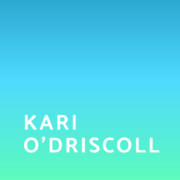
Last Sunday I took Eve and one of her friends to see “A Thousand Words.” They had seen the previews in the theater and thought it sounded really funny. The premise of the movie is that the main character, Eddie Murphy, has a tree growing in his backyard that drops a leaf for every word he utters. When the leaves all fall, the tree (and Murphy’s character) will die.
The movie started out true to it’s comedic preview but quickly morphed into a spiritual lesson of sorts, with Murphy’s character befriending a guru who was trying to help him enjoy what was left of his life.
While it wasn’t anywhere near the best movie I’ve ever seen, I appreciate the things it made me think about. Like the main character, the first thing my mind tried to do was find a workaround. Can’t talk? Okay, I’ll write everything down. No such luck. The tree still recognized those words for what they were and leaves came down in droves.
It comes as no surprise that communication is one of the most important parts of any relationship, and not being able to get your message across is frustrating for all parties involved. I found myself struggling to identify those words that are so packed with meaning that they don’t need an entire sentence surrounding them. I was, like the main character, attempting to minimize the number of words used in order to lengthen the life of the tree. As a writer, finding ways to express myself that are concise and clear is important, but so is embellishment. Fleshing out the landscape. Adding detail.
Ultimately, though, the tree would run out of leaves and one thousand words is nowhere near enough for a lifetime. The character’s relationships suffered and he was left frantically trying to find ways to heal the tree instead of accepting the inevitable.
Because this is Hollywood, there was of course a way to reverse the process, but I was struck by the message underneath. The guru was encouraging Murphy’s character to sit quietly and spend time in solitude in an effort to find calm within. It became clear that his constant communication with others was a way to distract himself from the pain he held and the writers had a clever way of showing that he identified himself with some people in his past that he would rather not be like.
The tree had become an external representation of the need for him to heal that part of himself that was most damaged. An undeniable sign that the damaged part and the other parts of himself were forever linked and that without addressing the ugliest portions of his experience, he could never hope to live a full life.
Unfortunately, the film was a very glossed-over, mass-produced one that touched on the issues in a way that would be easy to dismiss, especially in the face of the goofy Eddie Murphy-ness of it all. I appreciated being able to find something redeeming in it, however, that enabled me to start a conversation with Eve about what it is like to sit in silence with yourself and why it is often so uncomfortable.
I was able to dig into my own experiences with self-acceptance and appreciate a scene where Murphy’s character embraces the tree quite literally in a moment of understanding, bridging the gap between the two pieces of himself that make up the whole.
I don’t know that I’d recommend the movie, but I was certainly pleased with the message.








I love the message, too. I'm all over sitting with myself in silence these days. A luxury.
Dear Kari, . . . thanks for reviewing this movie for me. It sounds like one I would like. One of the wonderful things about blogging is that I have come to peace with many parts of myself. There's much more to do but the journey is being fulfilling. Peace.
Interesting. Sounds like it was inspired by the Buddhist quote:
"Better than a thousand hollow words, is one word that brings peace."
Wow! I LOVE your interpretation of this. That's exactly the message I get from parenting: our mistakes, our fears, our weaknesses are tied up within us. The more we try to heal our child, the harder we work at it, seeing our child as the problem, the more evident it becomes that it is really *our*selves that we need to heal. Thank you.
Thank you! Your review and your interpretation is just what I need! Always struggling for family movie choices that we can all agree upon, maybe this one will work! I'll push the Eddie Murphy angle, then have an opportunity for dinner table discussion the next day!